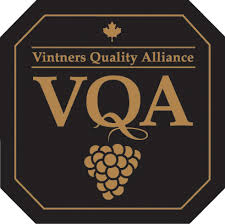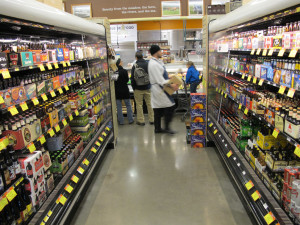Following in Alberta’s footsteps, the B.C. government announced yesterday a series of small changes to its liquor policy. And they look eerily similar to Alberta’s announcement last week (summarized here). Some of the beer-related highlights include allowing breweries to have off-site retail locations, sampling and selling at farmer’s markets and better promotion of B.C products in liquor stores. You can read the government release and backgrounder here.
I mention it on this prairie-focussed site for two things that caught my eye. The first is the exploration of creating a quality assurance program for craft beer in the province. In essence they are talking about a VQA for beer. This idea intrigues me. The Alberta review mused about this for Alberta wineries, but was silent on beer. It is a thought worth considering, I believe, although it is not without significant difficulties.
I like the idea for its emphasis on quality. And if it happens to have similar results as VQA did – improved quality, reputation, and commitment to local production – then it might prove a boon to craft brewing. It might nicely exclude certain pseudo-craft imitators we all gnash our teeth over, and create a baseline for quality. It also could serve as a useful back-door way to restore some integrity around beer style attribution. A quality control agency could stipulate that calling a beer a “pale ale”, for example, requires meeting some broad parameters for that style.
Of course, immediately the issue of how you define quality arises. In wine, VQA sets up restrictions around ingredients. Grapes (or most) must be grown locally and meet certain technical standards (e.g., sugar levels). They also have tasting panels to ensure the wine is free of faults and meets certain minimum quality standards.
Beer is a vastly different industry, however. Ingredient restrictions are more problematic. Wine has one ingredient and can be easily regulated. Beer has potentially dozens of legitimate additions. Wine is an annual cycle, with one batch per year. Beer is ongoing. A beer that might pass the taste test this month might develop problems in subsequent batches. By necessity the rules would have to be vastly different. Plus, I fear discussions would founder in a similar fashion as the endless debate about the definition of “craft”.
Still, problems acknowledged, I like the idea in concept. It feels like a natural next step for an industry trying to improve its credibility among consumers and working to distinguish itself from imports.
The second thing that caught my attention is what is missing. The government, for now, is backing away from a recommendation to sell beer and wine in grocery stores. While I have no insider knowledge, my instinct tells me the government sees this as a difficult move politically. There has been some talk in the comments section of my post last week about the Alberta changes about this option. My position is that Alberta’s window for that change closed 20 years ago, and it will take some significant sea changes politically to re-open it.
Besides, I am not fully convinced of the grocery store model. I won’t go into detail here (I’ll save that debate for a future post). but I remain to be convinced that beer sales in grocery and convenience stores will increase consumer access to good craft beer (be it local or import). Grocery sales don’t remove the other barriers to craft beer sales (the predatory practices of the big brewer oligopoly for one), and may add new ones. The core problem is shelf space. Stand-alone liquor stores can afford to devote a larger percentage of their floor space to beer shelves, as it is their single biggest seller. A grocery store will only devote a small section of their total space to alcohol, and of that beer will only get a portion. How does that help small brewers?
As I say I will spare you the details of my thinking on this for the time being. I will just note my goal is not more convenient access to the standard macro-lagers. My aim is to increase the availability of good beer, which I doubt is the aim of governments and the grocery industry lobby. Doing that might require a different kind of solution.




December 12, 2013 at 2:06 PM
Hey Jason,
Just wanted to say thanks for being such a great source or Western Canadian beer news (and opinion!)
Keep up the good work!
December 13, 2013 at 1:16 PM
I honestly do not understand the reticence over expanding beer retailing options to place such as farmers markets or high end grocers. Is it a cultural quirk? Nevertheless, I do wonder, if expanding retail options for craft beer has been proven successful already in Oregon, California, Montana or even Quebec, why wouldn’t it be successful in Alberta? With the food revolution, things are much different than 20 years ago. Again, what makes Alberta such an outlier?
December 16, 2013 at 4:58 PM
Hi Jason,
In case you are interested (and if you have some time to spare), back in 2008 I wrote my MBA thesis on the feasibility of creating a quality symbol of distinction for BC craft breweries.
http://summit.sfu.ca/item/695
Any feedback/comments from you or fellow Onbeer readers are greatly appreciated!
Cheers,
Leo.